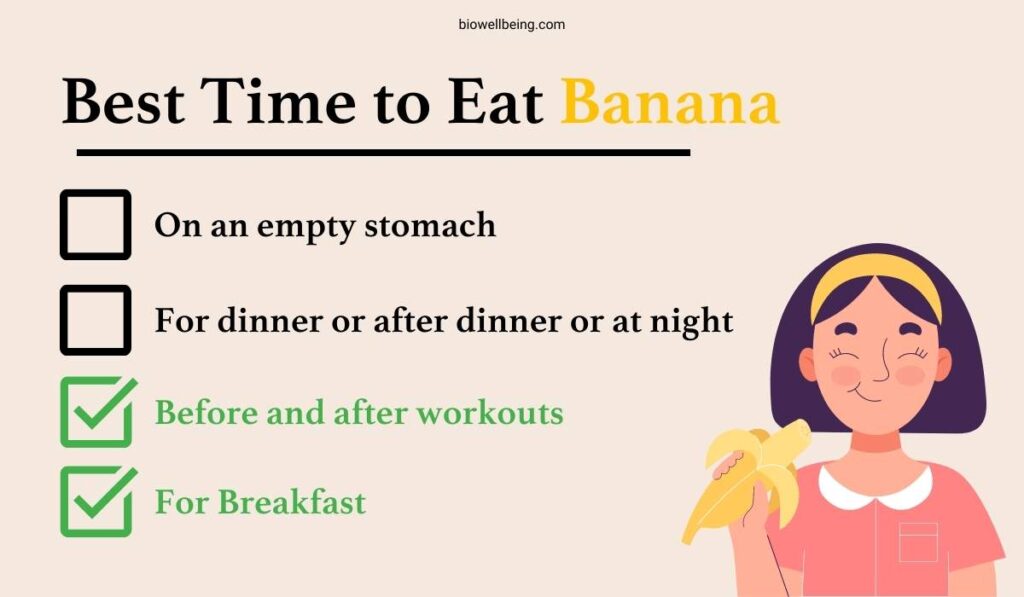We all know that fruits are the healthiest foods for all, and fruits are mostly naturally low in fat, sodium, and calories; none of them have cholesterol content.
Fruits are sources of essential nutrients that many people do not get in enough quantities, including fiber, potassium, vitamin C, and folates.
Eating different kinds of fruits provides an excellent health benefit; that is, people who eat more fruits and veggies as a part of their daily healthy diet have a reduced risk of some chronic diseases.
Fruits deliver nutrients vital for the health and maintenance of the body. We eat various fruits to keep ourselves healthy; the most commonly available fruits in the market are Bananas.

Nutritional Benefits of Banana
Bananas are extremely popular fruits as they are versatile, delicious, nutritious, healthy, and packed with great nutritional value.
Bananas and all other fruits are good for you but eating them in moderation is the key to acquiring proper nutrition.
Bananas are an outstanding source of potassium and vitamin B6.
Potassium helps to control heart function and electrolyte balance in the body. Hence, it is the favorite choice for many athletes.
Vitamin B6 helps store energy from protein and carbohydrates and is also known to help with brain functions and support better eye health.[1]
Along with the above nutrients, bananas contain various plant compounds which may reduce stress, inflammation, and risk of chronic diseases. A banana contains approximately 25 to 28 grams of carbohydrates and has many other benefits.
The key advantage of bananas is its resistant starch which is the good starch that provides probiotics to our gut and works like fiber. Bananas are best friends when one feels low on energy with all the above benefits.
Best Times to Eat Bananas
Banana on an Empty Stomach
As we know that bananas are power-packed with nutrition and rich in magnesium and potassium. However, when consumed on an empty tummy, it can overburden the bloodstream with these two nutrients and further affect or harm the cardiovascular system.
Study shows that a low magnesium intake frequently tends to lead to a high prevalence of magnesium deficiency, increasing the risk of cardiovascular events and mortality.[2]
Another study provides little evidence of magnesium, potassium, and calcium combined supplementation plays an important role in the treatment of mild or borderline hypertension.[3]
ALSO READ: What’ll Happen If You Eat Bananas on a Daily Basis? [Shocking Facts]
Banana for Breakfast
Breakfast is the best and ideal time to eat bananas. Bananas should be eaten in the morning with some other fruit or oatmeal as it works wonders for people aiming for their weight loss. When paired with other foods high in proteins, Bananas may lead to round off the meal.
There are some healthy breakfast options, such as banana smoothies with berries oatmeal topped with bananas, seeds, and nuts, which one can include in their daily routine.
Banana Before and After Workouts
Bananas are healthy and can be eaten before workouts to get some energy. They can also be consumed after gym in the evening.
Banana for Dinner/After Dinner/at Night
One should never have bananas at night or for or after dinner because it may lead to mucus formation and indigestion as it takes a long time to digest. It also can aggravate cold and cough.
The Bottom Line
The bottom line is that the ideal time to have fruits, including bananas, is in the morning for breakfast.
Bananas have rich nutrients and benefits; apart from those mentioned above, bananas help relax the muscles after a tiring day and help induce sleep.
Bananas even reduce heartburn after good spicy street food.
Bananas are good for everyone, from infants to the elderly, including pregnant ones, and ensure healthy bowel movements.
The recommended serving is one to two bananas per day and is also considered the moderate intake for most healthy people.
References:
- Kennedy D. O. (2016). B Vitamins and the Brain: Mechanisms, Dose and Efficacy–A Review. Nutrients, 8(2), 68. https://doi.org/10.3390/nu8020068
- Mazur A , Maier JA , Rock E , et al . Magnesium and the inflammatory response: potential physiopathological implications. Arch Biochem Biophys 2007;458:48–56.doi:10.1016/j.abb.2006.03.031
- Sacks FM, Willett WC, Smith A, Brown LE, Rosner B, Moore TJ. Effect on blood pressure of potassium, calcium, and magnesium in women with low habitual intake. Hypertension. 1998 Jan;31(1):131-8. doi: 10.1161/01.hyp.31.1.131. PMID: 9449404.

[…] Best Time to Eat Banana: Breakfast or Dinner? […]